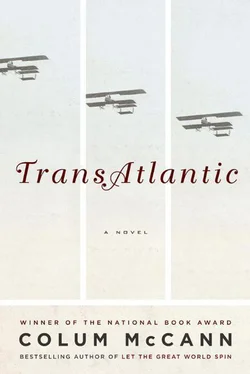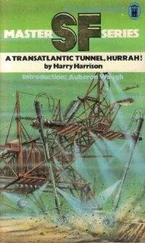Which brings a wry smile to even Gerald’s face as they drive past, since it was of course Bobby they would never forget.
IN THE EARLY days — when the process was fresh — he would drive to the Stranmillis Tennis Club along the banks of the Lagan.
Nine or ten outdoor courts, all artificial turf. Sprinkled with gritty sand. Tough on his ankles. But he liked to get out and knock the ball back and forth: he played with the younger civil servants. They were careful at first not to try to beat him until they learned that there was a sort of unbeatability about him. He was relentless, he hung on, a backcourt player, he slid along the rear line, returning the ball safely over the net, time after time. The photos belied it, but he was sprightly.
The luxury of age was the giving up of vanity: he could play for hours on end in the Irish drizzle. He wore white shorts and long tube socks and a blue tracksuit top. Afterwards he would take the opportunity to laugh at himself in the changing-room mirror.
He was surprised early one morning to come off the northernmost court to see a group of women gathered together on the courts at the front of the club. He wandered quietly in amongst them. Signs were hung on the rear of the benches: ALL IRELAND WOMEN’S TOURNAMENT. He liked that notion. At least in tennis they could play together. He was taken by the sight of an elderly woman who piloted her wheelchair along the back of the courts. A thick-boned woman with striking gray hair. She must have been ninety, but she carried herself quite well in the chair. A generosity to her. She stopped at the back of each court and marked the clipboard with a pencil, then called out to the players and the umpires. She had a singsong voice. He thought he heard an American accent, but wasn’t sure.
He came back later that day after a series of plenaries in Stormont. The usual bickerings. The day had sapped the fire from him. The tournament was still in progress. He loosened his tie and took off his jacket and slid in amongst the crowd to watch the final game.
The woman in the wheelchair was positioned at the back of the court. She wore a plaid wool blanket over her lap. She nodded at each point, and clapped at the end of the games: large, loud, animate. He couldn’t tell what side she was supporting, if any. Every now and then she let out a long laugh, and put her head on the shoulder of a younger woman alongside her. Small ripples of applause slipped across the evening.
These were the moments he liked the most. The refuge of the anonymous. The ordinary bits and pieces. Ireland unwarred.
The match ended to a round of polite applause and the elderly lady was wheeled away from the back of the courts. He saw her reach out for a small plastic glass of champagne.
She was left alone a moment and he noticed the edge of her wheelchair catch on the artificial turf.
— Lottie Tuttle, she said, stretching out her hand.
— George Mitchell.
— Oh, we know who you are, Senator, we saw you this morning with that awful backhand.
He reared back and laughed.
— You’re American? he asked.
— Lord, no.
She finished the small glass of champagne.
— Canadian. Sort of.
— Sort of?
— Newfoundland.
— Beautiful place.
— Lottie Ehrlich was the name. Once. Long ago.
— I see.
— I go back to the Druids, really.
She laughed and pushed the right side of the chair and it spun gracefully. He could hear elements of Irish in her accent.
— I live out by the peninsula. Strangford.
— Ah, he said. I’ve heard of it. The lake.
— Indeed. The lough. You should come visit, Senator. You’d be most welcome. We’ve a small cottage on the water.
— Well, I’m rather tied up now, Lottie.
— We’re hoping you’re going to sort out this mess for us, Senator.
— I’m hoping that, too.
— After that you can return to your backhand.
Lottie smiled and made her way around the back of the court to talk with the tournament winner. She pushed the wheelchair along entirely by herself, but then she turned around with a grin.
— Really, Senator, your problem is that you’re not planting your back foot properly.
HE SAW HER a few times after that. She was a regular at the club. She had, by all accounts, been a handy player once. She had lost her grandson to the Troubles years ago. The Senator never inquired how the boy died: he did not want to get himself in the business of having to choose sides, whose fault, whose murder, whose bomb, whose rubber bullet, whose bureaucracy.
What he liked about Lottie Tuttle was the manner in which she insisted that she still push herself along in the wheelchair.
He saw her early one morning guide the chair out to the middle of one of the courts. She wore a wide white skirt and white blouse. Even her racquet was ancient, a great wooden frame with red-and-white catgut. A younger woman set up on the opposite side of the net and lobbed a few shots at her. They played for half an hour. Lottie hit only three or four balls, and afterwards she sat at the back of the court, exhausted, her swollen arm wrapped in ice, until she fell asleep and dozed under a blanket.
HE RUNS THE gauntlet of the offices at Stormont. Rows of low squat buildings. Hardly palatial. The Gulag, they call it. A good name. Appropriate.
His car pulls up slowly. The crowds are gathered outside the gates. Candles on one side, flags on another. He keeps his head down, inhabits the backseat. But in the rear of the crowd he spies a man carrying a sign, and a bolt of joy moves through him: The incredible happens .
Hallelujah to that, he thinks, as the gates open up, and the car nudges through, flashbulbs erupting at the windowpane.
He walks from the car park and takes the steps two at a time: even jet-lagged, he wants to carry an energy into the building.
THEY ARE ALL here now: the North, the South, the East, the West. The Unionists at one end of the corridor, the Republicans at the other. The Irish government downstairs. The British upstairs. Young diplomats plying the middle ground. Moderates scattered about. Pretty young observers from the European Union walking through with clipboards. The hum of the photocopy machine. The pattering of keyboards. The smell of burned coffee.
His walk is careful but energetic: handshakes, eye-flicks, nods, smiles. Tim. David. Maurice. Stewart. Claire. Seamus. Charles. Orla. Rory. Francoise. Good morning. Great to see you. We’ll have that report ready at noon, Senator.
A bounce in his step. Along the drab gray corridor. Into the small bathroom. A quick change of shirt. He shoves his arms briskly through the sleeves. He would hate to be caught shirtless. He leans into the mirror. The hair grayer than it should be. And a little more scattered on top.
He whisks a quick comb through the hair, parts it sideways, splashes a bit of cold water on his face. A river comes back to him, he does not know why: the Kennebec. There is a song he heard once, at a dinner in Dublin. Flow on lovely river, flow gently along, by your waters so clear sounds the lark’s merry song . The Irish are great for their tunes, but all their lovesongs are sad and their warsongs happy. He has heard them often, late at night, singing in the hotel bars, notes drifting up to his room.
His staff is waiting in the outer office. Martha. David. Kelly. They, too, are dark-eyed with lack of sleep.
They phone down the hall to bring in de Chastelain and Holkeri. Followed by their own staff, Irish and British both. A long trail of the weary.
— How was your flight, Senator?
— Wonderful, he says.
They grin and nod: of course it wasn’t. Their own war stories. Delayed flights. Forgotten anniversaries. A burst water pipe on Joy Street. A missed wedding in Newcastle-upon-Tyne. A flat tire on the road from Drogheda. A sick niece in Finland. Something in their separateness has bound them together. They are all entirely sick of the process, but the deadline has jolted them awake.
Читать дальше












